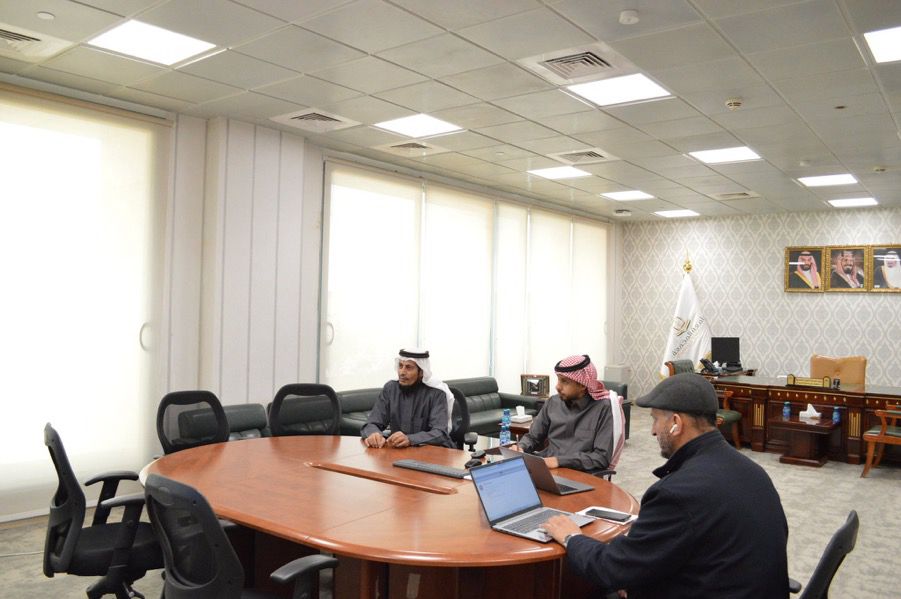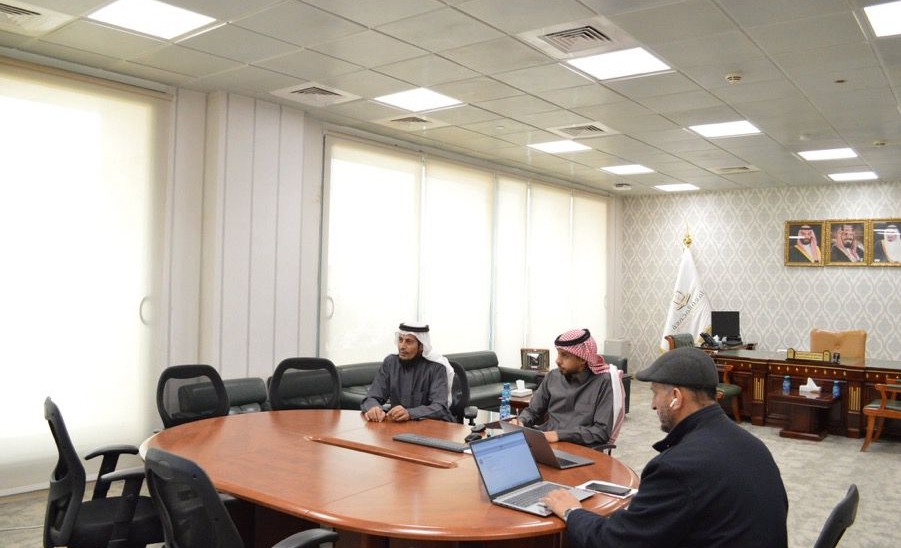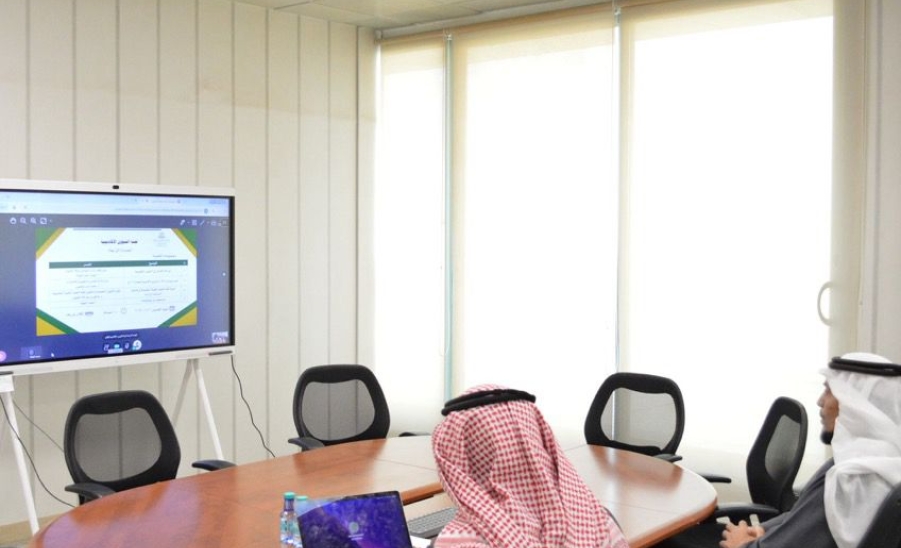The Vice-Rector for Educational Affairs, Prof. Mohammed Al-Aboudi, chaired the fourth meeting of the Academic Affairs Committee. The meeting was attended by Mr. Mohammed Al-Oula, the director of the Data Management and Business Intelligence Office.
At the beginning of the meeting, the Vice-Rector highlighted the importance of numbers in evaluating the success of academic programs and their alignment with the university's goals. He pointed out that numbers have become a vital tool for assessing university performance and showed how this data aids in making strategic decisions that improve the educational environment, foster innovation, and encourage high-quality programs.
During the meeting, Mr. Mohammed Al-Oula presented the role of business intelligence in educational affairs. He discussed the advancements in graduate data and employment rates in recent years, pointing out the updates made to this data in line with modern technologies for collecting and analyzing information. The meeting also addressed the challenges faced by graduates in certain fields and explored ways to enhance data management policies across various sectors.
The 2024 Academic Program Performance Indicators Report was reviewed. The report included criteria for performance quality and the basis for ranking colleges within the university. Emphasis was placed on the importance of accurately measuring these indicators to ensure annual reports meet program accreditation goals. The meeting also highlighted the significance of preparing self-study reports and learning outcomes, which are key tools for academic accreditation.
In a related context, Dr. Saleh Al-Ayouni, Vice Dean for Educational Affairs and Development at the **College of Applied Medical Sciences, shared the college's experience in improving academic program management. This included reducing excess credit hours, refining admission policies, regulating student and faculty capacity, and addressing the challenges faced by underachieving students.






